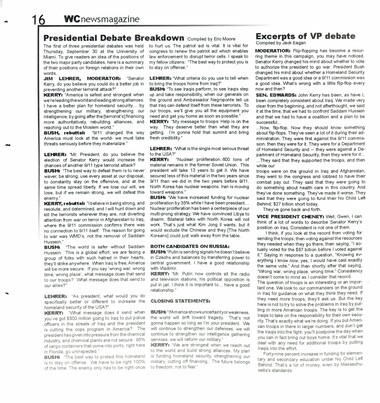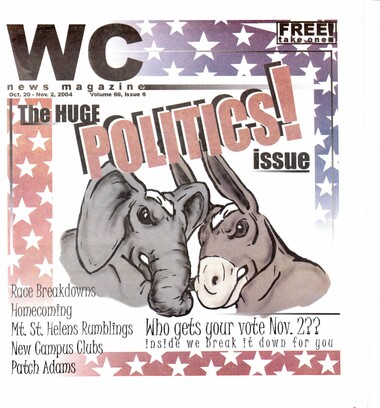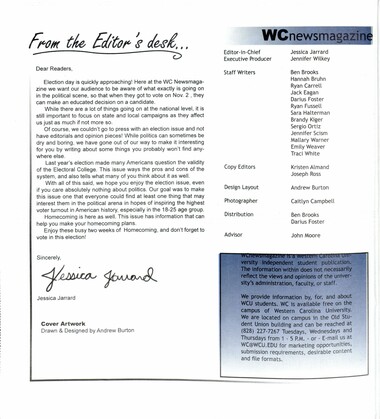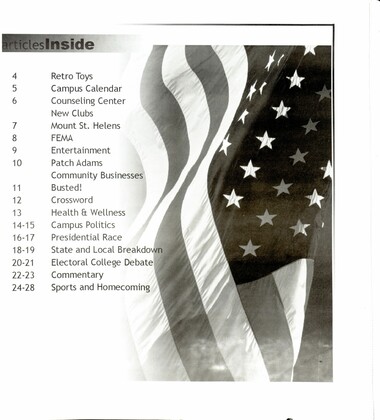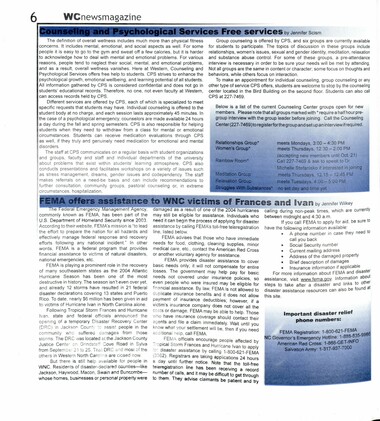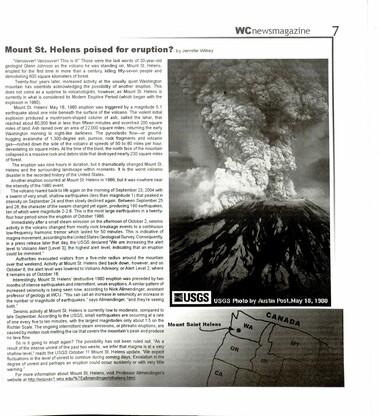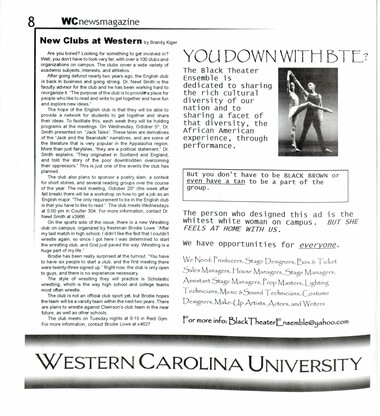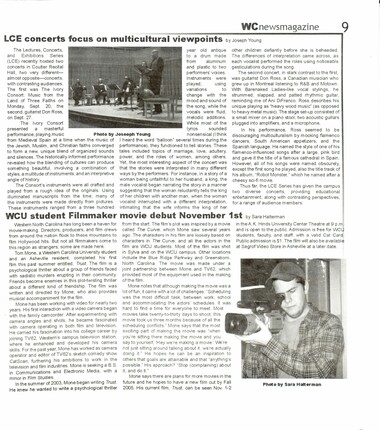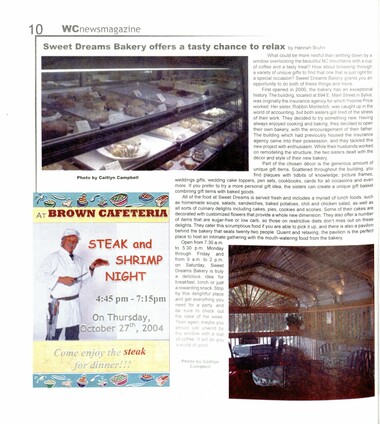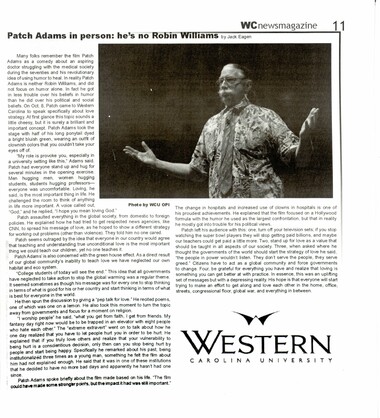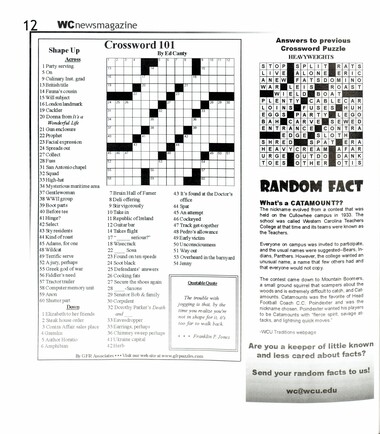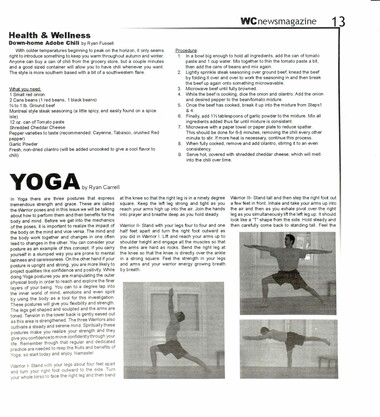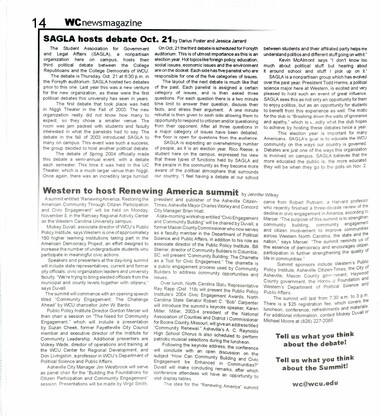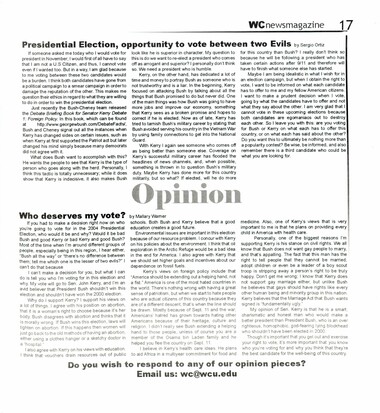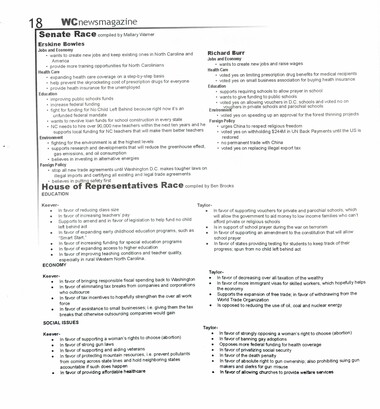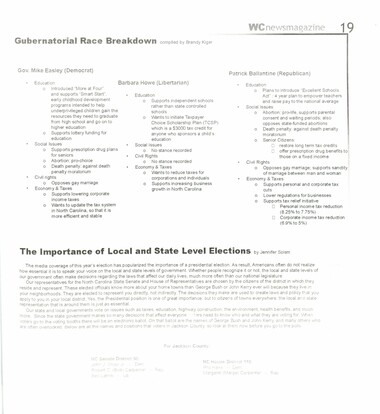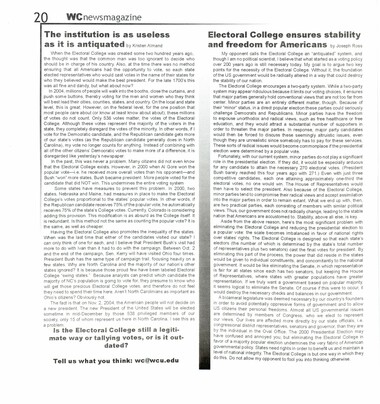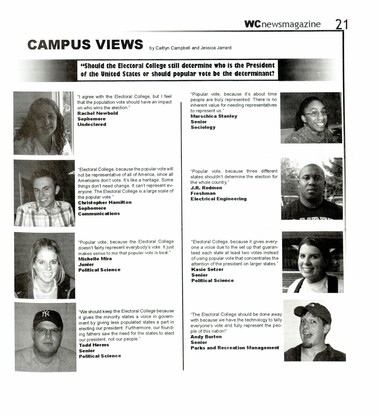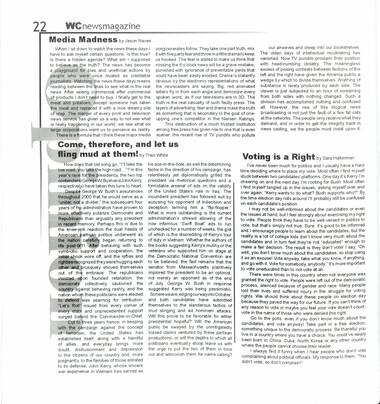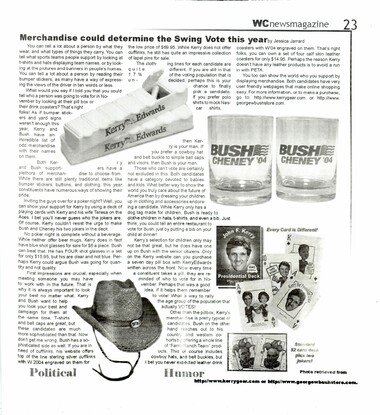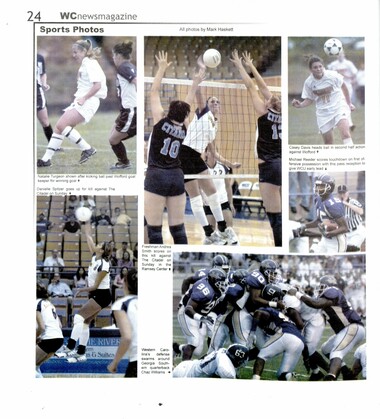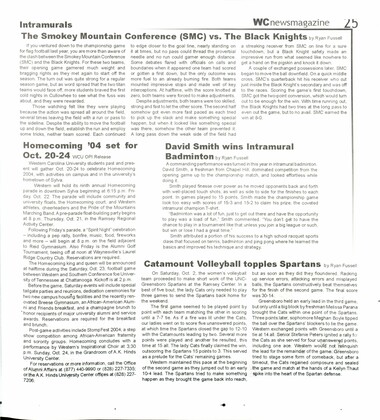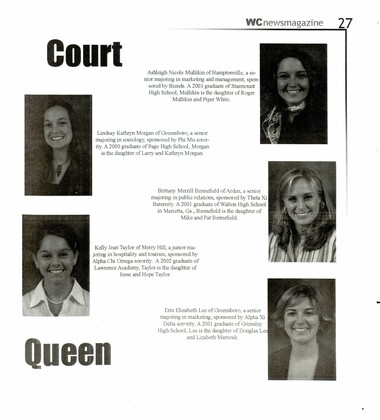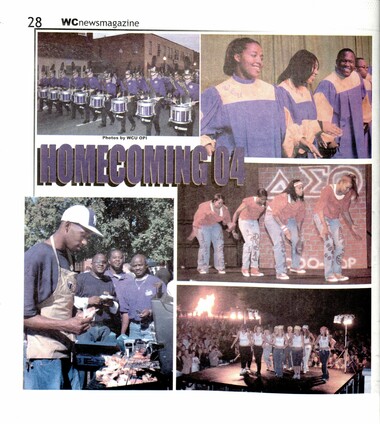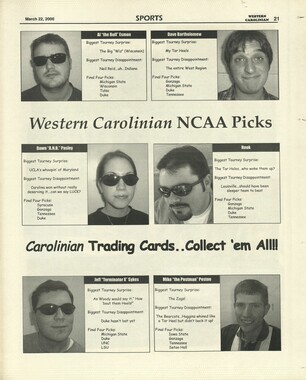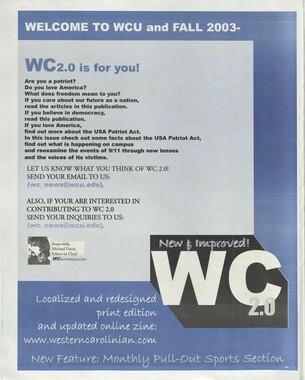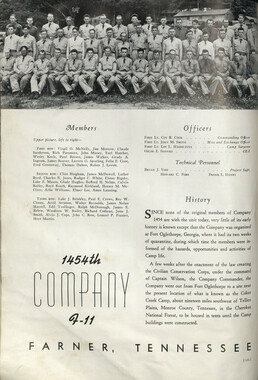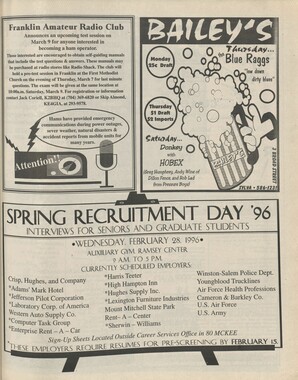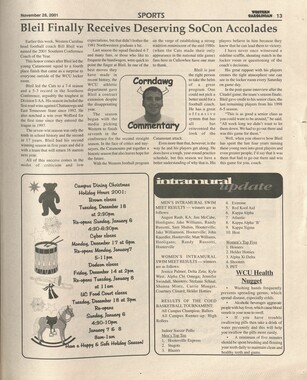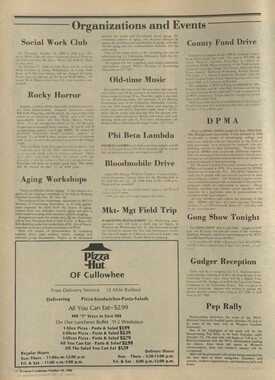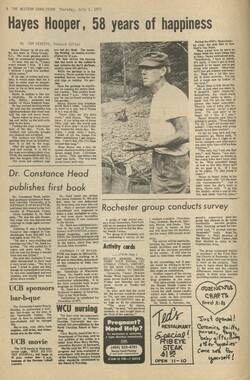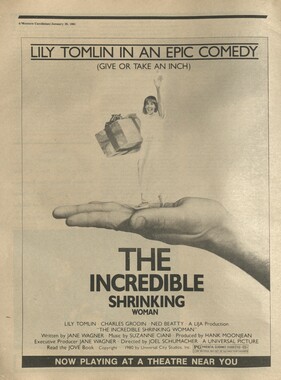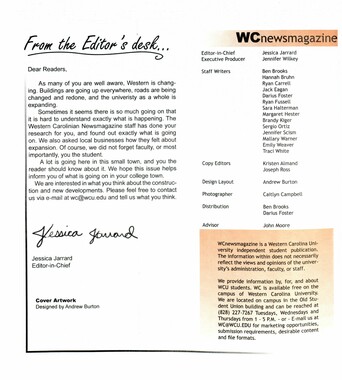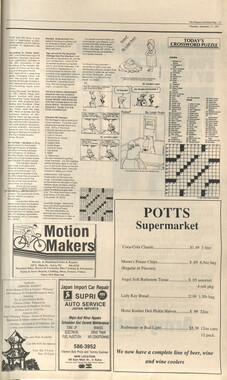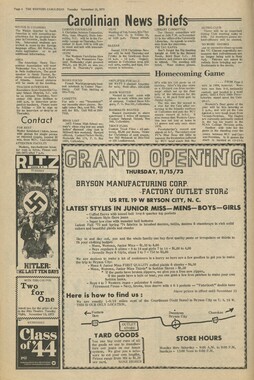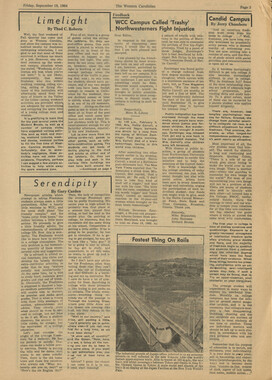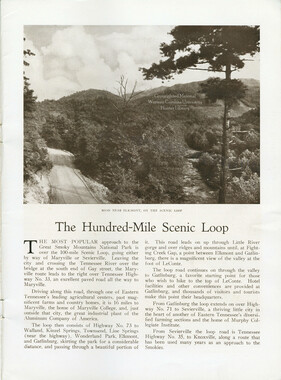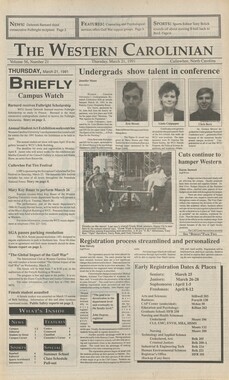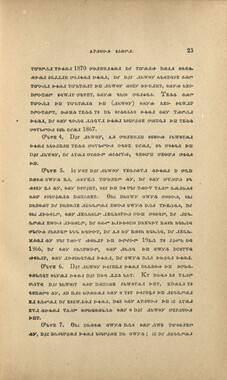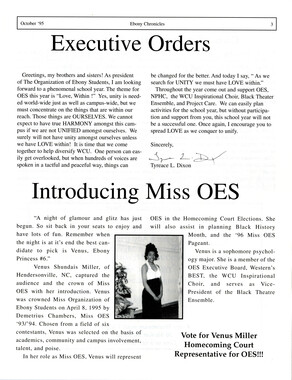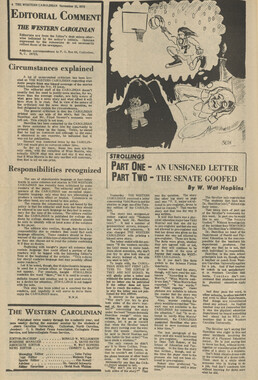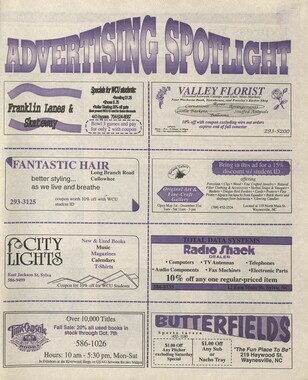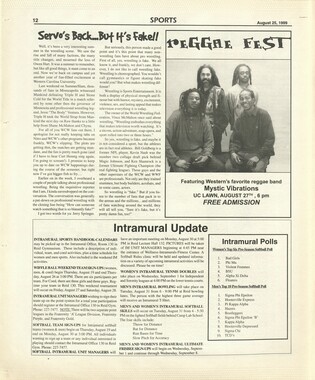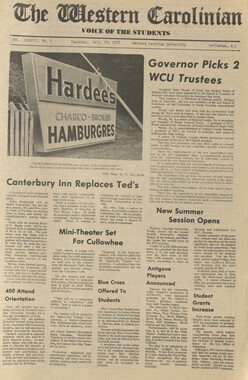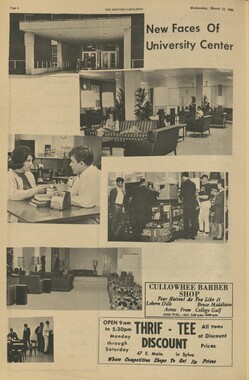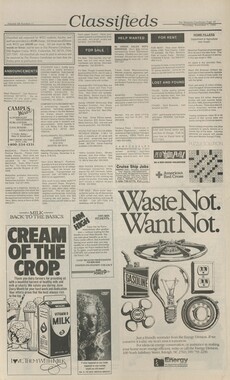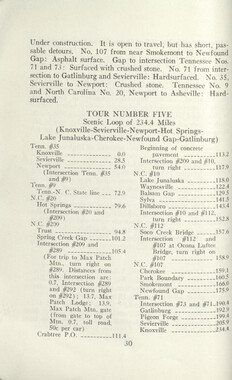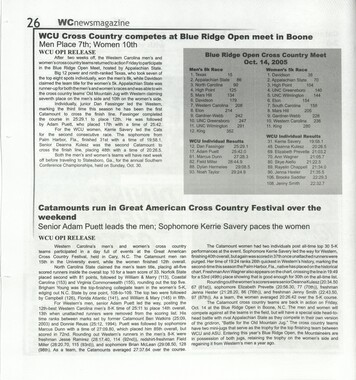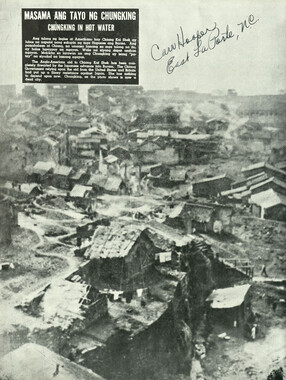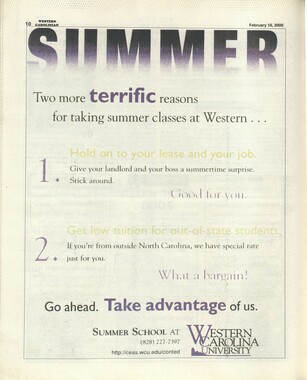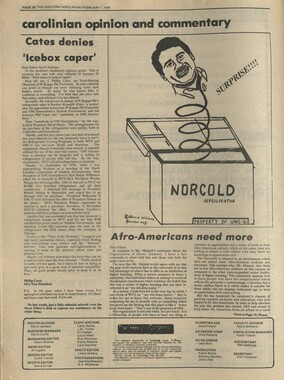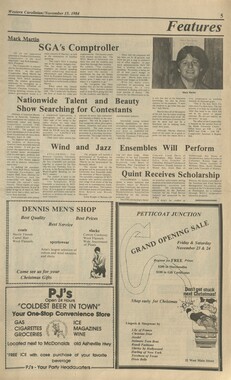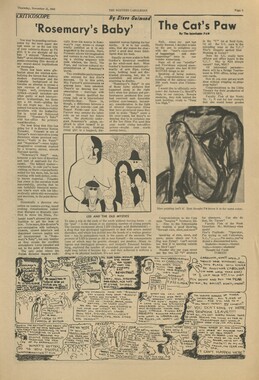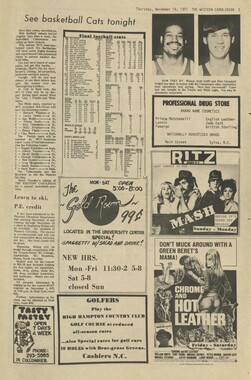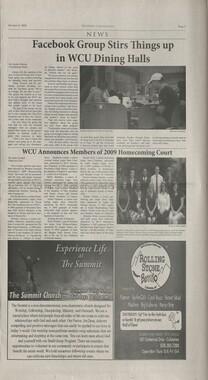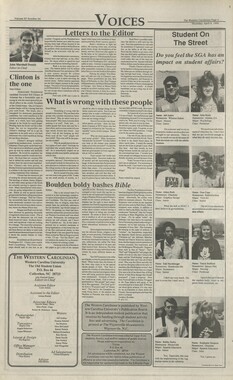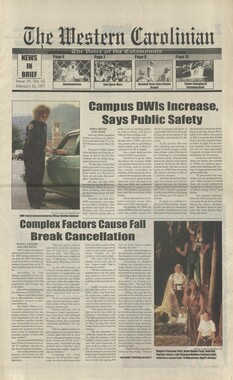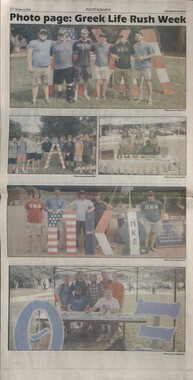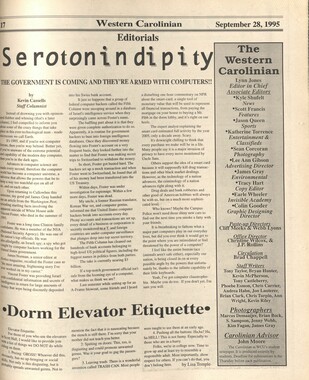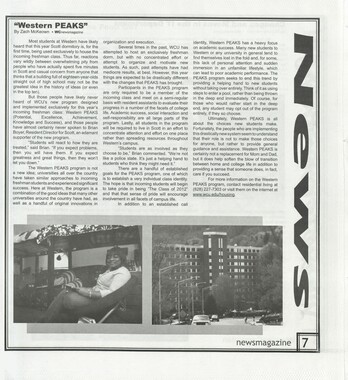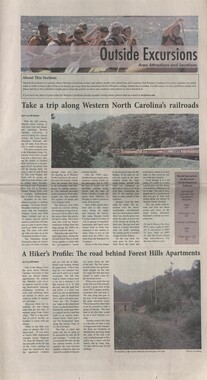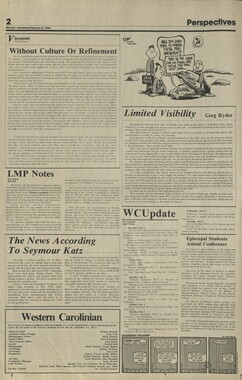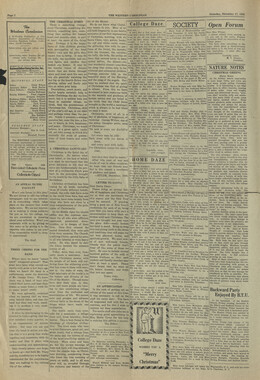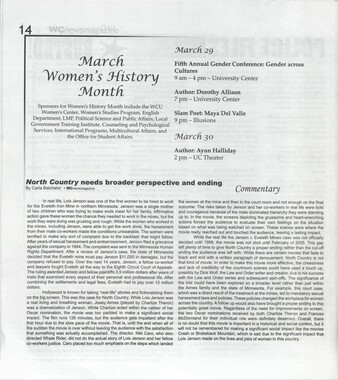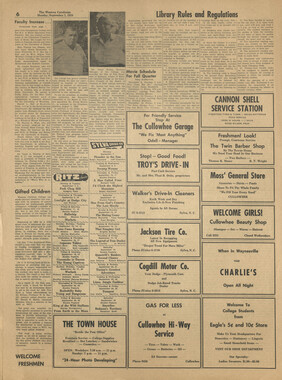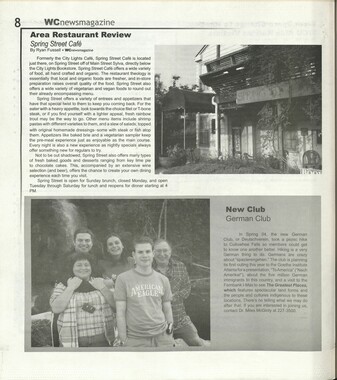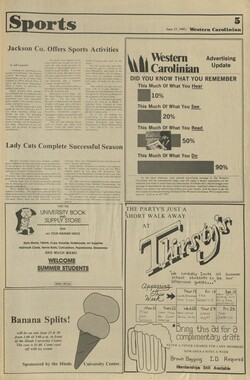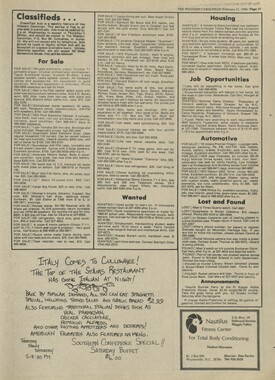Western Carolina University (21)
View all
- Canton Champion Fibre Company (2308)
- Cherokee Traditions (291)
- Civil War in Southern Appalachia (165)
- Craft Revival (1942)
- George Masa Collection (135)
- Great Smoky Mountains - A Park for America (2901)
- Highlights from Western Carolina University (422)
- Horace Kephart (941)
- Journeys Through Jackson (159)
- LGBTQIA+ Archive of Jackson County (85)
- Oral Histories of Western North Carolina (314)
- Picturing Appalachia (6798)
- Stories of Mountain Folk (413)
- Travel Western North Carolina (153)
- Western Carolina University Fine Art Museum Vitreograph Collection (129)
- Western Carolina University Herbarium (92)
- Western Carolina University: Making Memories (738)
- Western Carolina University Publications (2491)
- Western Carolina University Restricted Electronic Theses and Dissertations (146)
- Western North Carolina Regional Maps (71)
- World War II in Southern Appalachia (131)
University of North Carolina Asheville (6)
View all
- Allanstand Cottage Industries (62)
- Appalachian National Park Association (53)
- Bennett, Kelly, 1890-1974 (1463)
- Berry, Walter (76)
- Brasstown Carvers (40)
- Carver, George Washington, 1864?-1943 (26)
- Cathey, Joseph, 1803-1874 (1)
- Champion Fibre Company (233)
- Champion Paper and Fibre Company (297)
- Cherokee Indian Fair Association (16)
- Cherokee Language Program (22)
- Crowe, Amanda (40)
- Edmonston, Thomas Benton, 1842-1907 (7)
- Ensley, A. L. (Abraham Lincoln), 1865-1948 (275)
- Fromer, Irving Rhodes, 1913-1994 (70)
- George Butz (BFS 1907) (46)
- Goodrich, Frances Louisa (120)
- Grant, George Alexander, 1891-1964 (96)
- Heard, Marian Gladys (60)
- Kephart, Calvin, 1883-1969 (15)
- Kephart, Horace, 1862-1931 (313)
- Kephart, Laura, 1862-1954 (39)
- Laney, Gideon Thomas, 1889-1976 (439)
- Masa, George, 1881-1933 (61)
- McElhinney, William Julian, 1896-1953 (44)
- Niggli, Josephina, 1910-1983 (10)
- North Carolina Park Commission (105)
- Osborne, Kezia Stradley (9)
- Owens, Samuel Robert, 1918-1995 (11)
- Penland Weavers and Potters (36)
- Roberts, Vivienne (15)
- Roth, Albert, 1890-1974 (142)
- Schenck, Carl Alwin, 1868-1955 (1)
- Sherrill's Photography Studio (2565)
- Southern Highland Handicraft Guild (127)
- Southern Highlanders, Inc. (71)
- Stalcup, Jesse Bryson (46)
- Stearns, I. K. (213)
- Thompson, James Edward, 1880-1976 (226)
- United States. Indian Arts and Crafts Board (130)
- USFS (683)
- Vance, Zebulon Baird, 1830-1894 (1)
- Weaver, Zebulon, 1872-1948 (58)
- Western Carolina College (230)
- Western Carolina Teachers College (282)
- Western Carolina University (2008)
- Western Carolina University. Mountain Heritage Center (18)
- Whitman, Walt, 1819-1892 (10)
- Wilburn, Hiram Coleman, 1880-1967 (73)
- Williams, Isadora (3)
- Cain, Doreyl Ammons (0)
- Crittenden, Lorraine (0)
- Rhodes, Judy (0)
- Smith, Edward Clark (0)
- Appalachian Region, Southern (2924)
- Asheville (N.C.) (1941)
- Avery County (N.C.) (26)
- Blount County (Tenn.) (195)
- Buncombe County (N.C.) (1672)
- Cherokee County (N.C.) (283)
- Clay County (N.C.) (556)
- Graham County (N.C.) (236)
- Great Smoky Mountains National Park (N.C. and Tenn.) (525)
- Haywood County (N.C.) (3569)
- Henderson County (N.C.) (70)
- Jackson County (N.C.) (4913)
- Knox County (Tenn.) (35)
- Knoxville (Tenn.) (13)
- Lake Santeetlah (N.C.) (10)
- Macon County (N.C.) (420)
- Madison County (N.C.) (215)
- McDowell County (N.C.) (39)
- Mitchell County (N.C.) (135)
- Polk County (N.C.) (35)
- Qualla Boundary (982)
- Rutherford County (N.C.) (76)
- Swain County (N.C.) (2182)
- Transylvania County (N.C.) (270)
- Watauga County (N.C.) (12)
- Waynesville (N.C.) (86)
- Yancey County (N.C.) (72)
- Aerial Photographs (3)
- Aerial Views (60)
- Albums (books) (4)
- Articles (1)
- Artifacts (object Genre) (228)
- Bibliographies (1)
- Biography (general Genre) (2)
- Cards (information Artifacts) (38)
- Clippings (information Artifacts) (191)
- Copybooks (instructional Materials) (3)
- Crafts (art Genres) (622)
- Depictions (visual Works) (21)
- Design Drawings (1)
- Drawings (visual Works) (185)
- Envelopes (73)
- Exhibitions (events) (1)
- Facsimiles (reproductions) (1)
- Fiction (general Genre) (4)
- Financial Records (12)
- Fliers (printed Matter) (67)
- Glass Plate Negatives (381)
- Guidebooks (2)
- Internegatives (10)
- Interviews (815)
- Land Surveys (102)
- Letters (correspondence) (1013)
- Manuscripts (documents) (618)
- Maps (documents) (177)
- Memorandums (25)
- Minutes (administrative Records) (59)
- Negatives (photographs) (6090)
- Newsletters (1290)
- Newspapers (2)
- Notebooks (8)
- Occupation Currency (1)
- Paintings (visual Works) (1)
- Pen And Ink Drawings (1)
- Periodicals (193)
- Personal Narratives (10)
- Photographs (12976)
- Plans (maps) (1)
- Poetry (5)
- Portraits (4568)
- Postcards (329)
- Programs (documents) (181)
- Publications (documents) (2443)
- Questionnaires (65)
- Relief Prints (26)
- Sayings (literary Genre) (1)
- Scrapbooks (282)
- Sheet Music (2)
- Slides (photographs) (402)
- Songs (musical Compositions) (2)
- Sound Recordings (796)
- Specimens (92)
- Speeches (documents) (18)
- Tintypes (photographs) (8)
- Transcripts (322)
- Video Recordings (physical Artifacts) (23)
- Text Messages (0)
- A.L. Ensley Collection (275)
- Appalachian Industrial School Records (7)
- Appalachian National Park Association Records (336)
- Axley-Meroney Collection (2)
- Bayard Wootten Photograph Collection (20)
- Bethel Rural Community Organization Collection (7)
- Blumer Collection (5)
- C.W. Slagle Collection (20)
- Canton Area Historical Museum (2110)
- Carlos C. Campbell Collection (462)
- Cataloochee History Project (64)
- Cherokee Studies Collection (4)
- Daisy Dame Photograph Album (5)
- Daniel Boone VI Collection (1)
- Doris Ulmann Photograph Collection (112)
- Elizabeth H. Lasley Collection (1)
- Elizabeth Woolworth Szold Fleharty Collection (4)
- Frank Fry Collection (95)
- George Masa Collection (173)
- Gideon Laney Collection (452)
- Hazel Scarborough Collection (2)
- Hiram C. Wilburn Papers (28)
- Historic Photographs Collection (236)
- Horace Kephart Collection (861)
- Humbard Collection (33)
- Hunter and Weaver Families Collection (1)
- I. D. Blumenthal Collection (4)
- Isadora Williams Collection (4)
- Jesse Bryson Stalcup Collection (47)
- Jim Thompson Collection (224)
- John B. Battle Collection (7)
- John C. Campbell Folk School Records (80)
- John Parris Collection (6)
- Judaculla Rock project (2)
- Kelly Bennett Collection (1482)
- Love Family Papers (11)
- Major Wiley Parris Civil War Letters (3)
- Map Collection (12)
- McFee-Misemer Civil War Letters (34)
- Mountain Heritage Center Collection (4)
- Norburn - Robertson - Thomson Families Collection (44)
- Pauline Hood Collection (7)
- Pre-Guild Collection (2)
- Qualla Arts and Crafts Mutual Collection (12)
- R.A. Romanes Collection (681)
- Rosser H. Taylor Collection (1)
- Samuel Robert Owens Collection (94)
- Sara Madison Collection (144)
- Sherrill Studio Photo Collection (2558)
- Smoky Mountains Hiking Club Collection (616)
- Stories of Mountain Folk - Radio Programs (374)
- The Reporter, Western Carolina University (510)
- Venoy and Elizabeth Reed Collection (16)
- WCU Gender and Sexuality Oral History Project (32)
- WCU Mountain Heritage Center Oral Histories (25)
- WCU Oral History Collection - Mountain People, Mountain Lives (71)
- WCU Students Newspapers Collection (1923)
- Western North Carolina Tomorrow Black Oral History Project (69)
- William Williams Stringfield Collection (2)
- Zebulon Weaver Collection (109)
- African Americans (390)
- Appalachian Trail (35)
- Artisans (521)
- Cherokee art (84)
- Cherokee artists -- North Carolina (10)
- Cherokee language (21)
- Cherokee pottery (101)
- Cherokee women (208)
- Church buildings (190)
- Civilian Conservation Corps (U.S.) (111)
- College student newspapers and periodicals (2012)
- Dams (107)
- Dance (1023)
- Education (222)
- Floods (61)
- Folk music (1015)
- Forced removal, 1813-1903 (2)
- Forest conservation (220)
- Forests and forestry (1196)
- Gender nonconformity (4)
- Great Smoky Mountains National Park (N.C. and Tenn.) (181)
- Hunting (45)
- Landscape photography (25)
- Logging (119)
- Maps (83)
- Mines and mineral resources (8)
- North Carolina -- Maps (18)
- Paper industry (38)
- Postcards (255)
- Pottery (135)
- Railroad trains (72)
- Rural electrification -- North Carolina, Western (3)
- School integration -- Southern States (2)
- Segregation -- North Carolina, Western (5)
- Slavery (5)
- Sports (452)
- Storytelling (243)
- Waterfalls -- Great Smoky Mountains (N.C. and Tenn.) (66)
- Weaving -- Appalachian Region, Southern (280)
- Wood-carving -- Appalachian Region, Southern (328)
- World War, 1939-1945 (173)
Western Carolinian Volume 69 Number 06
Item
Item’s are ‘child’ level descriptions to ‘parent’ objects, (e.g. one page of a whole book).
-
-
16 | WCnewsmagazine The first of three presidential debates was held Thursday, September 30 at the University of Miami. To give readers an idea of the positions of the two major party candidates, here is a summary of their positions on foreign relations in their own words. JIM LEHRER, MODERATOR: Senator Kerry, do you believe you could do a better job in preventing another terrorist attack? KERRY: America is safest and strongest when we'releadingtheworldandleading strong alliances. | have a better plan for homeland security... by strengthening our military, strengthening our intelligence, by going after the [terrorists] financing more authoritatively, rebuilding alliances, and reaching out to the Moslem world. BUSH, rebuttal: 9/11 changed the way America must look at the world- we must take threats seriously before they materialize. LEHRER: Mr. President, do you believe the election of Senator Kerry would increase the chances of another 9/11 type terrorist attack? BUSH: The best way to defeat them is to never waver, be strong, use every asset at our disposal, to constantly stay on the offensive, and at the same time spread liberty. If we lose our will, we lose, but if we remain strong, we will defeat this enemy. KERRY, rebuttal: | believe in being strong, and resolute, and determined, and | will hunt down and kill the terrorists wherever they are, not diverting attention from war on terror in Afghanistan to Iraq, where the 9/11 commission confirms there was no connection to 9/11 itself. The reason for going to war was WMDs, not the removal of Saddam Hussein. BUSH: The world is safer without Saddam Hussein. This is a global effort; we are facing a group of folks with such hatred in their hearts, they'll strike anywhere. When Iraq is free, America will be more secure. If you say wrong war, wrong time, wrong place, what message does that send to our troops? What message does that send to our allies? LEHRER: As president, what would you do specifically better or different to increase the homeland security of the USA? KERRY: What message does it send when you've got $500 million going to Iraq to put police officers in the streets of Iraq and the president is cutting the cops program in America? The president has given into pressure from the chemical industry, and chemical plants are not secure. 95% of cargo containers that come into ports, right here in Florida, go uninspected. BUSH: The best way to protect this homeland is to stay on offense. We have to be right 100% of the time. The enemy only has to be right once Presidential Debate Breakdown compited by Eric Moore to hurt us. The patriot act is vital. It is vital for congress to renew the patriot act which enables law enforcement to disrupt terror cells. | speak to my fellow citizens: The best way to protect you is to stay on offense. LEHRER: Vhat criteria do you use to tell when to bring the troops home from Iraq? BUSH: To see Iraqis perform, to see Iraqis step up and take responsibility, when our generals on the ground and Ambassador Negroponte tell us that Iraq can defend itself from these terrorists. To our troops, we'll give you all the equipment you need and get you home as soon as possible. KERRY: My message to troops: Help is on the way. They deserve better than what they are getting. Im gonna hold that summit and bring fresh credibility. LEHRER: Vvhat is the single most serious threat to the USA? KERRY: Nuclear proliferation..600 tons of material remains in the former Soviet Union. This president will take 13 years to get it. We have secured less of this material in the two years since 9/11 than we did in the two years before 9/11. North Korea has nuclear weapons. Iran is moving toward weapons. BUSH: We have increased funding for nuclear proliferation by 35% while | have been president... Nuclear proliferation has been a centerpiece of our multi-prong strategy. We have convinced Libya to disarm. Bilateral talks with North Korea will not work. Thats just what Kim Jong II wants, but it would exclude the Chinese and they [The North Koreans] could just walk away from the table. BOTH CANDIDATES ON RUSSIA: BUSH: Putin is sending signals he doesnt believe in Czechs and balances by transferring power to central government. | have a good relationship with Vladimir. KERRY: Mr. Putin now controls all the radio and television stations, his political opposition is put in jail. | think it is important to... have a good relationship. CLOSING STATEMENTS: BUSH: lfAmerica showsuncertainty or weakness, the world will drift toward tragedy. Thats not gonna happen so long as |m your president. We will continue to strengthen our defenses, we will continue to strengthen our intelligence gathering services, we will reform our military. KERRY: We are strongest when we reach out to the world and build strong alliances. My plan is funding homeland security, strengthening our military, cutting off financing. The future belongs to freedom, not to fear. Excerpts of VP debate Compiled by Jack Eagan MODERATIOR: Flip-flopping has become a recur- ring theme in this campaign, you may have noticed. Senator Kerry changed his mind about whether to vote to authorize the president to go war. President Bush changed his mind about whether a Homeland Security Department was a good idea or a 9/11 commission was a good idea. Whats wrong with a little flip-flop every now and then? SEN. EDWARDS: John Kerry has been, as have |, been completely consistent about Iraq. We made very clear from the beginning, and not afterthought, we said it at the time, that we had to confront Saddam Hussein and that we had to have a coalition and a plan to be successful... ...Now, flip-flop. Now they should know something about flip-flops. They've seen a lot of it during their ad- ministration. They were first against the 9/11 commis- sion, then they were for it. They were for a Department of Homeland Security and -- they were against a De- partment of Homeland Security, then they were for it... ... They said that they supported the troops, and then while our troops were on the ground in Iraq and Afghanistan, they went to the congress and lobbied to have their combat pay cut. They said that they were going to do something about health care in this country. And theyve done something. They've made it worse. They said that they were going to fund their No Child Left Behind; $27 billion short today. They've gone back and forth. VICE PRESIDENT CHENEY: Vvell, Gwen, | can think of a lot of words to describe Senator Kerrys position on Iraq. Consistent is not one of them. | think, if you look at the record from voting for sending the troops, then voting against the resources they needed when they go there, then saying, I ac- tually voted for the $87 billion before | voted against it. Saying in response to a question, Knowing ev- erything | know now, yes, | would have cast exactly the same vote. And then shortly after that saying, Wrong war, wrong place, wrong time. Consistency doesnt come to mind as | consider that record. The question of troops is an interesting or an impor- tant one. We look to our commanders on the ground in Iraq for guidance on what they think they need. if they need more troops, they'll ask us. But the key here is not to try to solve the problems in Iraq by put- ting in more American troops. The key is to get the lraqis to take on the responsibility for their own secu- rity. Thats exactly what we're doing. If you put Ameri- can troops in there in larger numbers, and dont get the Iraqis into the fight, you'll postpone the day when you can in fact bring our boys home. Its vital that we deal with any need for additional troops by putting Iraqis into the effort. Forty-nine percent increase in funding for elemen- tary and secondary education under No Child Left Behind. That's a lot of money, even by Massachu- settss standards.
Object
Object’s are ‘parent’ level descriptions to ‘children’ items, (e.g. a book with pages).
-
The Western Carolinian is Western Carolina University's student-run newspaper. The paper was published as the Cullowhee Yodel from 1924 to 1931 before changing its name to The Western Carolinian in 1933.
-
